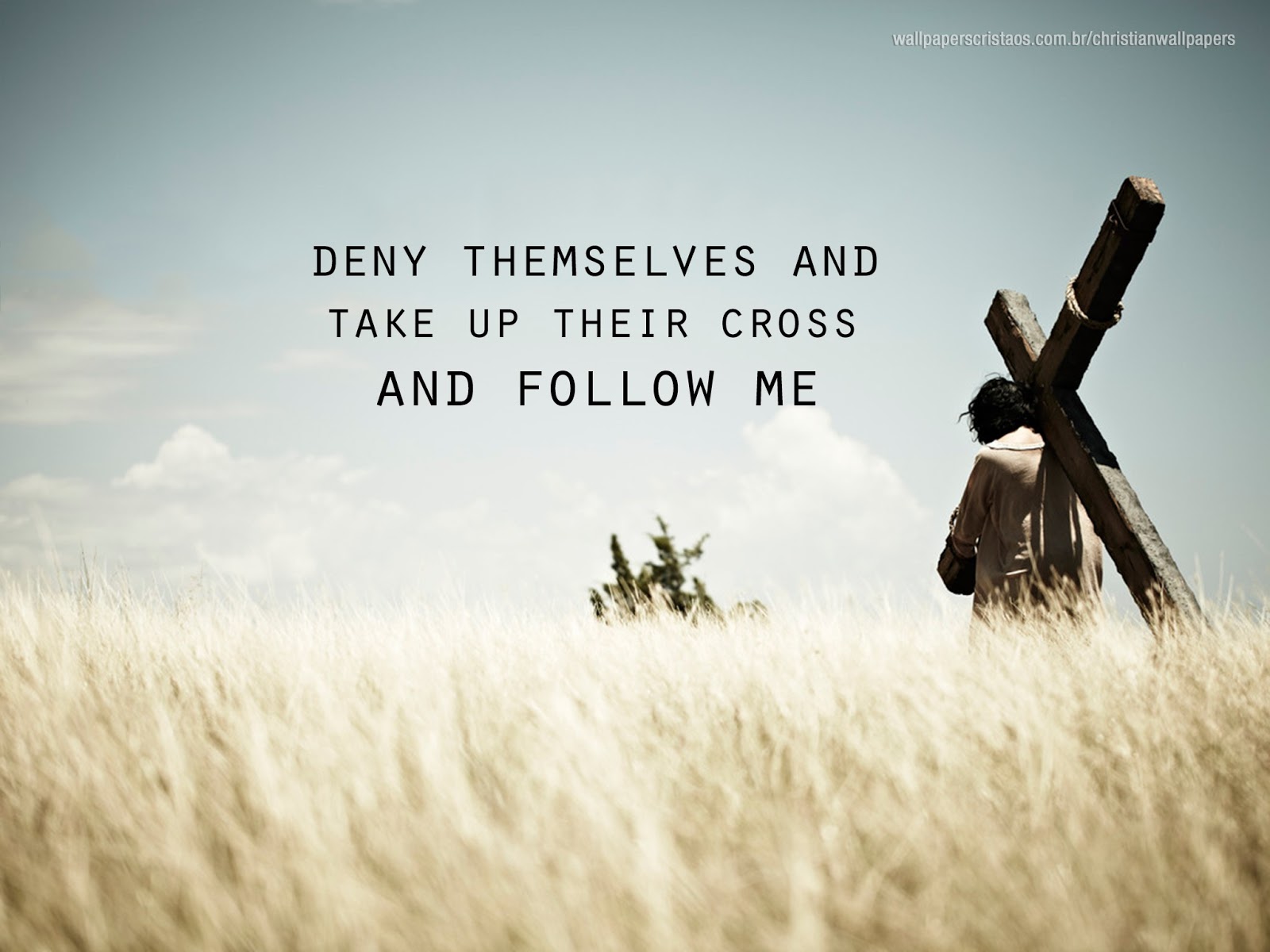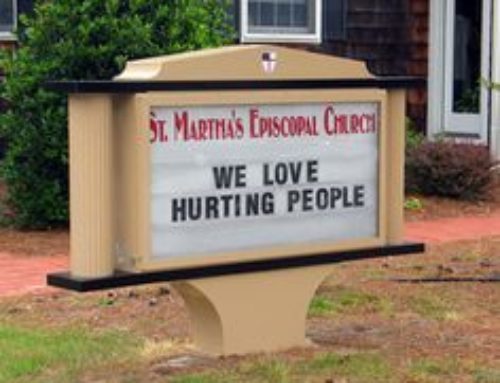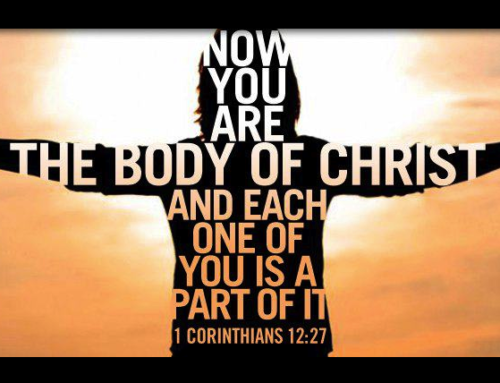The final five tips in our #4oTipsForChristFollowers series and there are some really good ones here:
#36 Do something for the least of these.
In Matthew 25 Jesus gives us this beautiful and terrifying parable of a time of judgement to come where the King stands before two distinct groups of people, categorised in the story as sheep and goats.
‘Then the King will say to those on His right, ‘Come, you who are blessed by My Father, take your inheritance, the kingdom prepared for you since the creation of the world. For I was hungry and you gave Me something to eat, I was thirsty and you gave Me something to drink, I was a stranger and you invited Me in, I needed clothes and you clothed Me, I was sick and you looked after Me, I was in prison and you came to visit Me.’
We know how the story ends, with the declaration that ‘Whatever you did for these the least of these brothers and sisters of Mine, you did for Me.’ And then the opposite story for those who did nothing for the marginalised and the needy.
We can’t do all of the things [and in some ways this is an extension or a different perspective of Tip #10 about all of us needing to be on the metaphorical beach!] but we can all do some of the things and then together collectively be doing all of the things.
The reality too often though is that some few of the people are left doing some majority of the things. While many just spectate.
This parable is a strong reminder that it doesn’t end well for the spectators. i would go as far as suggesting that this Matthew 25 parable is salvation dependent. The gift of what Jesus offers to us is free and we only find salvation through Him and His death on the cross, but if there is no subsequent action involving us connecting with the least of these, then did the salvation and accompanying transformation really actually happen?
Some of us have money, and we can find creative and simpler ways of using that to assist and show love to the least of these [and it’s not that they are less than us but rather that they are typically viewed by society as ‘less than’] by giving to individuals or to families, to programs or to non-profit groups, or through groups we belong to like churches or societies or other.
Some of us have time and all of us have skills of some type and giving to ‘the least of these’ does not have to look like money. Visiting people or listening to someone sharing their story or teaching someone how to grow a plant or manage money well or read or learn a different language are just some of the ways we can give of those. Just being with someone who is sick or in pain or in trouble. And more.
If you’re leaving the ‘do something for the least of these’ to someone else, or everyone else, then you might want to be checking your savedness, because i’m not sure that’s what Jesus was talking about when He said, ‘Deny yourself and take up your cross every day and follow Me!’
Do something for the least of these. Some things, even.
#40TipsForChristFollowers
= = = = = = = = = = =
#37 It’s okay to be wrong. It’s not okay to not admit it.
One of the most mind-blowing moments of preaching in ever encountered was when someone asked the audience what the opposite of Faith was. Everyone was quick to answer: Doubt. Obvious, right? Except that it’s not.
The speaker then went on to suggest that the opposite of Faith is Certainty. If we are certain about something, then we don’t need faith in it, because we know. Faith operates in the realm of doubt – we believe even if and when it feels like we’re really not sure and no-one around us does.
David facing down Goliath. Gideon against the Midianites. Perhaps the best example of this is Shadrach, Meshach and Abednego confidently declare to Nebuchadnezzar that the God they serve will save them from the furnace. But then, as if to appease a little bit of doubt that may still be lingering despite their faith, they add, ‘But even if God does not…’
The Bible is full of characters who struggled with big doubt and yet the majority of them continue on in faith and experience God working in amazing ways.
Unfortunately though, for some reason [hello Pride, my old friend] in the church, in particular, it feels like doubt is often judged harshly. Or the people expressing doubt are mocked, demoted or asked to leave. “How dare you not believe that God…”
And we can never be wrong! Why is that? i’ve never understood it. It is more than okay to be wrong and it is a sign of great strength to be able to utter the words, “I don’t know” – greater strength if you can follow them up with, “But let me try and find out” or “But I can ask someone who does”
It’s okay to not know and it is foolish to lie and pretend we do. It is sinful. It is damaging to people’s faith because often people know when you are talking through another part of your body than your mouth.
The older i get the more i find that so much of my faith and following Jesus journey requires me to hold ideas in tension. Sometimes things that seem to contradict but somehow don’t. The picture of God in the Old Testament vs God in the New Testament is one such example. So often it seems to be two different Gods, until you start doing the work and see that the vengeful God of the Old Testament is present in the New [goodbye Ananias and Saphira] and that the compassionate loving God of the New Testament is all over the Old Testament [hello Ninevah]. It is the same God and sometimes we are required to hold ideas that are not easy or comfortable because the Truth lies in them.
Pastors and leaders can be particularly bad at this as if somehow them uttering the words “I don’t know” somehow makes them weaker or more questionable in terms of their job, whereas actually it makes them more relatable and human and dispenses some of the aura of ‘The man of God at the front’.
We need to be okay with being wrong and we need to say the words and then, in most cases, we probably need to do the work of finding out what the Truth is. But also sometimes we might need to be okay with being wrong or unknowing for the rest of our lives as some ways that God works or doesn’t seem to be working remain mysterious and confusing. Paul had a thorn in his flesh that God didn’t seem to be interested in rescuing him from. Raise people from the dead but not so good with a thorn. Paul spoke about it to encourage others who might be facing a similar thing.
Similar to greed, pride is a sermon we don’t hear too often in church. It probably gets more passing mention that greed, which i really never hear unless it’s in a list, but the dangerous and destructive power of pride is so huge that we really need to be speaking about it and dealing with it a lot more, and from a personal confession space.
Be someone who is okay to not know something or a lot of some things. Be someone who is confident enough in their identity as a child of God to say the words “I don’t know” as often as they are true. Be someone who then does the work of trying to find out by reading or speaking to someone with more experience or training or listening or asking God to reveal it to you.
It’s okay to be wrong. It’s not okay to not admit it.
#40TipsForChristFollowers
= = = = = = = = = =
#38 Be of good character and integrity when it comes to the small things.
This is one i have always felt is huge, but yet you won’t find a direct verse to be lifted from the Bible on this one.
Although it is interesting to note that in John 12 after we see Judas make a heartfelt plea for money not to be lavishly wasted on Jesus’ foot perfume, that he was dipping his hand into the money bag on the side for his own purposes. Small flaws in character often reveal larger integrity issues.
The other day a new friend of mine gave me a lift to a place we were both going to. As we headed up De Waal Drive towards Main Road we were in the right lane but needed to turn left, so i mentioned the fact and his response was on the lines of: “You’re not one of those people who don’t take the gaps, are you?” and proceeded to push in to the traffic turning left about twenty cars ahead of where we should have been.
We had an excellent camp together and he was incredible with the kids and really a great leader the whole weekend, but that incident didn’t stop running through my head.
When i used to do a lot of Scripture Union camps in my twenties, it always used to bother me when leaders would push into the food line, because they were sending out the same message my friend was: My time is more important than yours. Or maybe just i am more important than you. Which in a model that tends to aim for servant leadership is a pretty toxic attitude to have.
What feels significant though is when i look at the majority of those leaders today – flaws that were exposed in what might seem like an innocent pushing into a food line have shown in much larger ways and revealed huge character flaws and a lot of debris left in many of their paths.
The Bible does, i believe, give us the concept of ‘Be faithful in small things and you will be put in charge of big things.’
We see this in the life of Jesus. His encounters with the devil in the desert before He started His ministry were in some ways opportunities for short cuts and yet each time Jesus held to the “It is written” plan of Scripture and refused to compromise.
King David was someone who compromised, on a number of occasions, and pretty much each time left a trail of debris and brokenness and even death.
This can become a tricky one, because we do like to pick our sins. So, i had huge issue with people who used to pirate cds or watch Netflix illegally [at least own it if you’re doing it – so many people love to justify the illegalities they embrace] but not such huge issues with driving over the speed limit. And so on. So we do need to seek consistency and not pick and choose where our character and integrity displays and where others fail.
But, if you are regularly inviting the Holy Spirit to shine a light on your life and if you are in community with people who you invite to hold you accountable, then you are much more likely to be a person of strong character and integrity.
It is so crucial to the big things that we are people of good character and integrity when it comes to the small things.
#40TipsForChristFollowers
= = = = = = = = = =
#39 Be okay with not being okay and create spaces for others to do the same.
One of my highlight moments when tbV and i were living in Oakland in the States and i got to preach at Regeneration church from time to time, was the moment my mouth worked a little faster than my brain [happens all the time!].
i was improvising an opening bit about how when people come to a church gathering they often look like they have it all together – even if they’ve just had a huge family fight in the car or finances are a complete mess or someone has just died – the idea is to wear a mask and give the ‘Everything is great’ look and blend in with everyone doing the same.
The unfortunate words i chose to express this idea were: “No-one comes to church with their junk hanging out.” Yup, i said those words and we lost Val’s whole row instantly as well as various other pockets around the room.
For me, the story of Peter being miraculously released from prison in Acts 12 has always struck me as one of those ‘hold in tension’ pieces i have spoken about during this series. Amazing miracle happens and Peter gets busted out of jail by some angels and the people praying for his release are so surprised when he arrives at the door that they slam it in his face.
You can just imagine what their church service would have looked like on Sunday, right? [or Synagogue gathering on Saturday, yes, yes, poetic licence and all] Big party? Everyone celebrating and the praise band going off and yet if you look to the side you might notice this old woman having a moment by herself. She doesn’t seem to be celebrating and it’s a little bit weird compared to everything else that is happening in the building. Until you realise she is the mother of James, the brother of John, who in verse two of that same miracle-release chapter is murdered. Traditional belief has it that James was sawn in half which is absolutely horrendous but besides the point. Miraculous release for Peter and no rescue for James. A lot of tension to be held there.
But do we create space for James’s mother to mourn and grieve and do we sit beside her in silence and share in her sorrow? Or do we expect the happy face and tell her that she can shed her tears at home?
Too many of the worship songs sung on a Sunday in churches around the world assume we have had a good week, are financially stable, are not struggling with doubt or battling to forgive and have a solid connection with God. Whereas the Psalms are filled with moments of grief, of sadness, of confusion, of absolute doubt. In the Bible it seems like it was okay to not be okay, and that God was where it was safe to take that. Hopefully, we as God’s people, should be the same.
Grief is healthy.
Lament is healthy.
Doubt is really okay.
Where are the spaces where followers of Jesus can just be real about how they are doing? Where are the places where Jesus followers can express their deep emotions of grief or not-okayness? Are we creating them as church congregations? Are we creating them as individuals and families and friends, not only when something obvious happens [like a death] but also when times are hard, or sickness is lingering, or exams are overwhelming or faith feels tired and weak.
Do we let people come to church with their junk hanging out? We might start to see much deeper moves of the Spirit if we did.
Be okay with not being okay and create spaces for others to do the same.
#40TipsForChristFollowers
= = = = = = = = = = =
#40 Don’t be a dick!
And we’ve lost some people already.
There is a well-known Tony Campolo story about a talk he gave about the poor which contained this moment:
“I have three things I’d like to say today. First, while you were sleeping last night, 30,000 kids died of starvation or diseases related to malnutrition. Second, most of you don’t give a shit. What’s worse is that you’re more upset with the fact that I said shit than the fact that 30,000 kids died last night.”
Great story, right? And hits to the bone. How often have we as the church focused on the minors while the majors [greed, selfishness, ignoring the poor and more] are left untouched?
Only thing though, is that it is not just a story. i have a friend, let’s call him John, who was giving a talk at two camps back to back and in the first camp he used the Tony Campolo analogy with powerful effect. Turns out the quote was right though as the denominational leaders were so horrified and a few youth leaders so scarred that for the second camp they made him change the word ‘shit’ to ‘crap’ and it totally lost all the intended meaning [because only seven people really cared that he had said the word ‘crap’]. The leaders of the camp cared more that John had said ‘a bad word’ than about their young people being conscientised about the need of the church to be caring for the poor.
But back to Tip #40. If it bothers you more that i used to the word ‘dick’ than the fact that you might be one, there is your problem right there.
One of the best Christmas presents i ever received is a fabric poster in my man cave that says those words: Don’t be a dick! And in the social media world in particular, they can be really helpful. Because sometimes we can do the right thing in the wrong way and lose a whole lot of the battle along the way.
There is that quote that goes: Be kind for everyone you meet is fighting a battle you know nothing about. This is a helpful thing to keep in mind.
It does get tricky when the ideas in this tip come up against spaces of injustice and just general sin because they have to be held against the example we see of Jesus going off at the Pharisees or castigating His disciples [even calling one of them satan at one point], sometimes with very strong words that might not come across as kind. Those tend to be seen in places where people should have known better.
For the most part, we are meant to be known for the love we have for each other. We are commanded to love God with everything in us and our neighbour as ourselves. These should be our default settings. Sometimes though, to be kind to one person might involve raising your voice or your words at another person. Jesus heart for the poor and marginalised seems to be the catalyst for His shouting at the religious leaders [and some of His words are REALLY strong there]. This feels like another area of Both/And but if you’re going to err then err on the side of not being a dick.
So as far as it is in your power, in your online and offline dealings with people, in the attitude you have to your parents and the way you treat those who work for you [if you are paying someone minimum wage but not a living wage for example you might be being a dick and you should stop!] or your refusal to work on your racial or gender biases, don’t be a dick!
#40TipsForChristFollowers







Thank you for challenging me to examine myself and for motivating me to change those areas of my life that need attention.
Ah, thank you so much. Just good to know someone is actually reading these. Hope it was helpful…